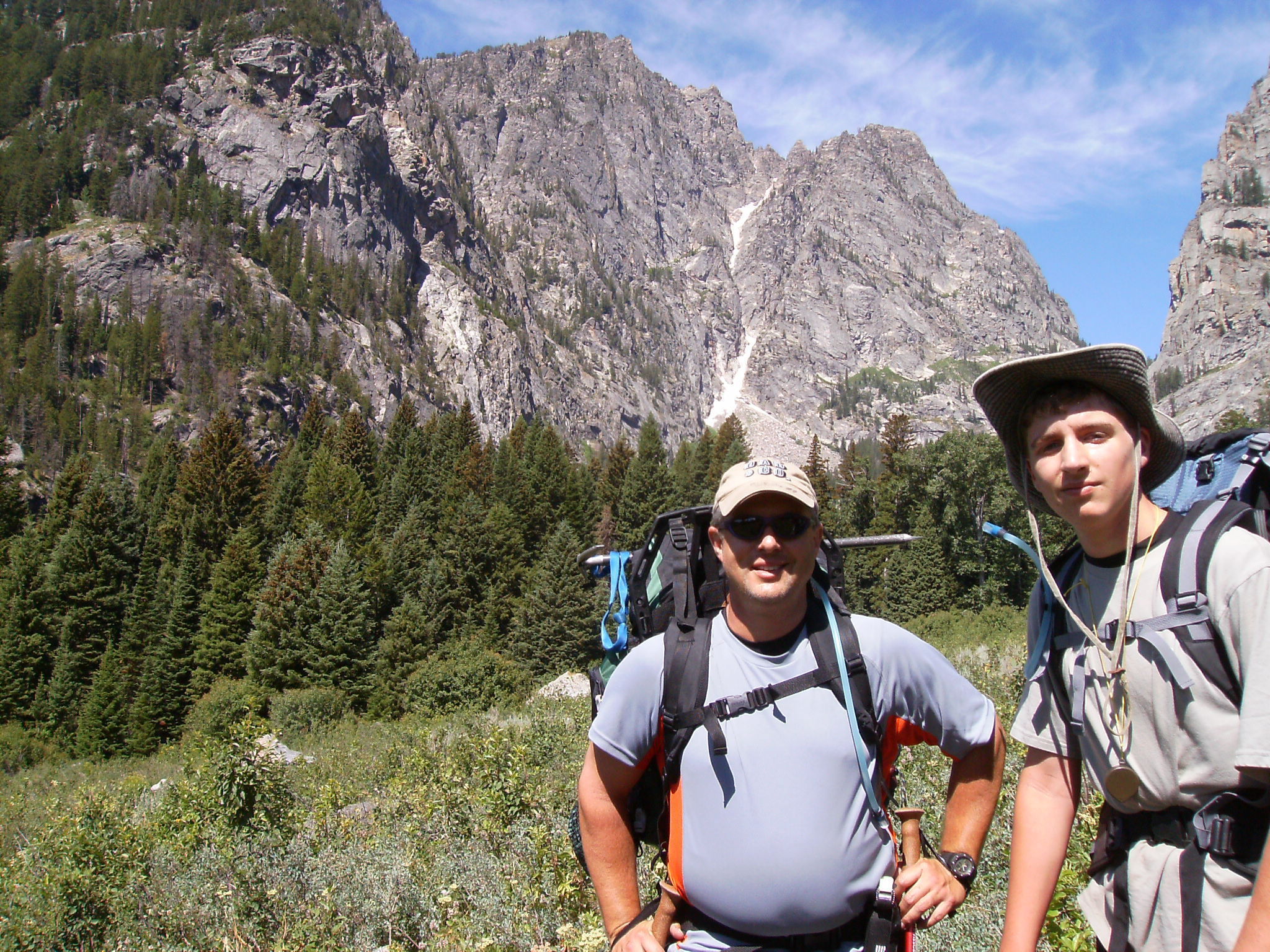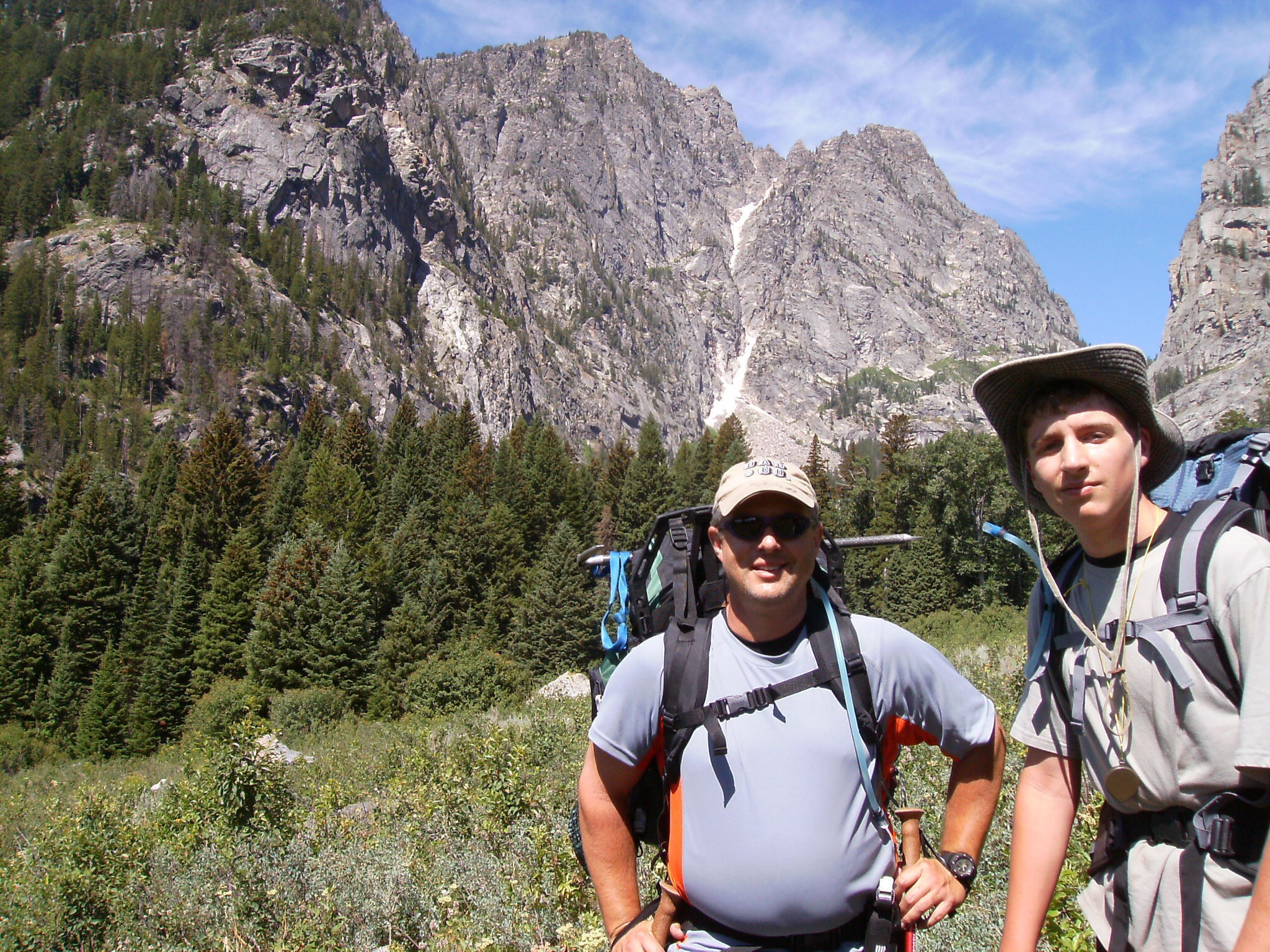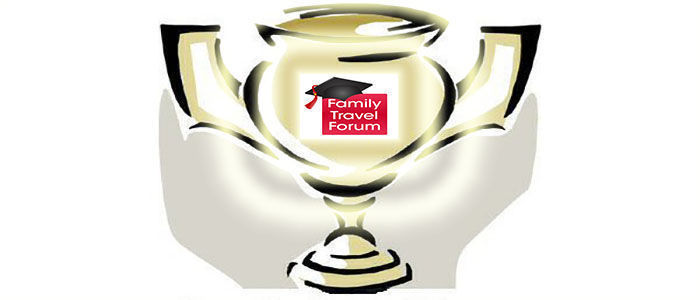
The second night was much like the first. I stripped off my pack, this time remembering to clear an area, and I even had time to cook dinner before crawling into my mobile grave. I felt a short-lived sense of accomplishment, knowing that I had survived yet another long, strenuous day. Short-lived, because, once again, I fell asleep before I was able to do more than cursory thinking about this backpacking trip to Grand Teton National Park.
Early sleep seemed to be something of a prevailing theme throughout the experience; I’d arrive in camp, beaten and worn out, occasionally have the presence of mind to cook dinner, then fall asleep; once accidentally leaving my ready-to-eat dinner out for the bears. Not until the hike concluded at the Climber’s Ranch, a small establishment offering dirt-cheap, dirt-hard bunks, did I have any time whatsoever to consider the effects of this trip on me, mentally and physically.
The physical changes were obvious. I’d become acclimatized to the mountain air; by the fifth day I was easily able to push through hills that would have seemed mountains at the start. And even the food that I didn’t eat began to feel lighter throughout the week, relieving me of my burden slowly but surely. It felt like a fight against myself; I knew intellectually that my backpack would be lighter and that I would be more energized should I eat dinner, or stop for lunch early, or leave some food behind, but my body didn’t much care for these intellectual musings. It had work to do.
Thoreau mentioned some of the mental changes that took place in his acclaimed work, Walden; or, Life in The Woods. Something he didn’t mention was the amount of time required for these changes to take place. For the first day or so I was nearly “normal.” Or, at least, I was in the state that I, at the time, considered to be normal, for that was yet another major mental change.
After three days of difficult work climbing and traversing mountains and hills, I seemed to lose consciousness. I was still aware of my arms, my legs, moving forward, always moving, but it felt as though my mind had decided it didn’t care anymore. I was much less aware of the feelings of sweat on my face and shirt, much less aware of the restricting straps of the backpack, much less aware of the forty pound burden that I was still toting across the Tetons. Emerson became a transparent eyeball. I became a transparent mind. I saw nothing, heard nothing, and felt nothing. I considered everything. Freed from the burden of physical labor, my mind was able to think about subjects I had previously never considered.
If Emerson’s stargazing made him part or particle of God, what does my introspection make me? What do I become when I turn my eyes inward, stop focusing on the mundane, and really think?
I won’t pretend that my ideas will change any lives but my own. I fully acknowledge that most of them were worse than worthless; they were flat out wrong. But they will stay with me forever. I will never forget that place I visited, not to mention the beauty of the place I physically visited. I’ve spent a ridiculous amount of time trying to get back. And I know, somehow, that I never will.
Dear Reader: This page may contain affiliate links which may earn a commission if you click through and make a purchase. Our independent journalism is not influenced by any advertiser or commercial initiative unless it is clearly marked as sponsored content. As travel products change, please be sure to reconfirm all details and stay up to date with current events to ensure a safe and successful trip.




Backpacking’ll do it. Great title!